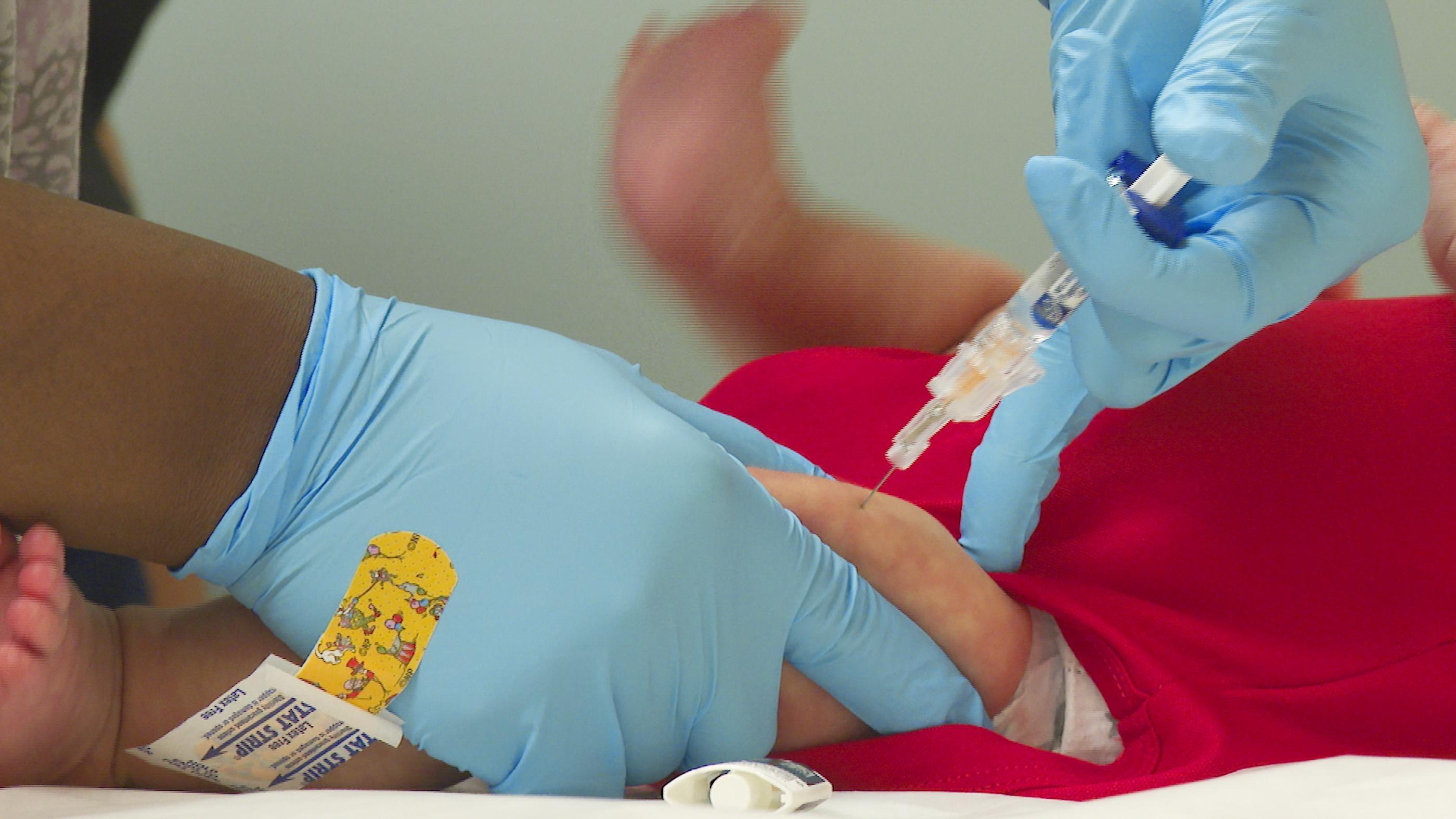“We're not at the point of declaring it an emergency, but we are at the point of making awareness of it and the rising number of cases,” she said.
Whooping cough gets its name from the characteristic “whoop” sound of an infected person struggling to breathe between coughs.
“Pertussis is transmitted person-to-person through respiratory droplets or contact with airborne droplets,” Dr. Dotson said. “Patients are infectious for a significant period of time. They're infectious from the onset of their symptoms until about three weeks after the start of a high-pitched coughing fit.”
According to the department of health, more than 76% of this year’s cases were in children younger than 18, including seven cases in infants less than two months old.
Infants can only receive a DTap vaccination at two, four and six months, although pregnant women can receive a vaccination dose in their 27th-36th week of pregnancy to provide some immunity for newborns. Dr. Dotson says anyone planning on coming in contact or caring for a newborn needs to take caution.
“We encourage grandparents who are expecting newborn infants, are going to be around newborn infants or anyone who is a caretaker of newborn infants, that they be up to date on all of their shots and have their most recent boosters,” she said.
Dotson says the efficacy of the vaccine can wane over time. Children between 11 and 12 years of age can receive the Tdap vaccination to boost their immunity. Adults who’ve never been vaccinated can also receive Tdap. Antibiotics are used to treat pertussis, and in severe cases, hospitalization may be necessary.
Eligible parents, guardians and children can receive vaccinations and booster shots at county health departments. Qualified children under 18 years of age may be able to get free vaccinations under the Vaccines for Children program.




